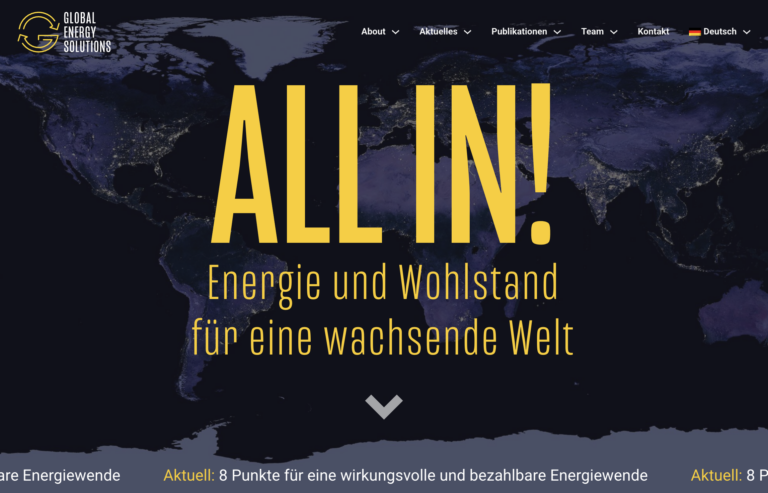News

Subscribe to our newsletter
- Publications
GES paper on Small Modular Reactors
Read onA reference to another GES paper, which has now been published, on the topic: Faster …
- Articles
Germany urgently needs CCUS
Read onCCUS stands for the capture of CO2 during combustion processes and the further disposal or …
- Articles
ALL IN! vs. All Electric
Read onALL IN! vs. All Electric – How climate protection and prosperity can succeed internationally at …
- Articles
8 points for an effective and affordable energy transition
Read onThe German energy transition is in urgent need of correction. The search for cost-optimised solutions …
- Position papers, Publications
Volatile renewables: why a balanced mix is crucial
Read onThe topic of the energy transition has finally reached the election campaign in Germany. The …
- GES News
GES book released
Read onALL IN! is a joint effort by the Global Energy Solutions team. The co-authors of …







